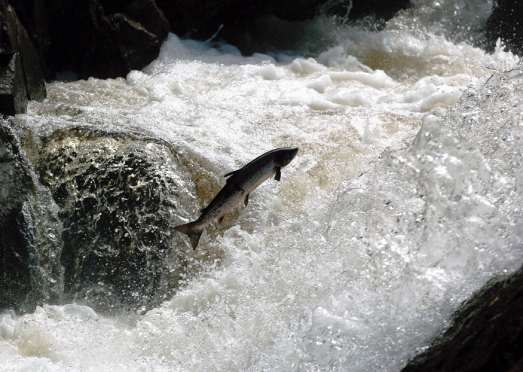A leading expert in underwater acoustics has slammed contractors building the Aberdeen Western Peripheral Route for not doing enough to ensure the well-being of the River Dee’s salmon.
Professor Anthony Hawkins, the former head of the Marine Laboratory in Aberdeen, has claimed that assessments of the potential damage that can be caused to aquatic life by the ongoing noise and vibrations from the mammoth task of building the Aberdeen Bypass have not been adequate.
The professor, after examining a report of the noise measurements that have been made so far in the river, said that the methods being used don’t give an accurate impression of the levels of sound going through the river thanks to the works.
Professor Hawkins said: “Underwater noise from human activities is known to have a number of adverse effects on fish.
“These can range from acute effects such as injury to the fish, or permanent or temporary hearing impairment, to chronic effects such as developmental deficiencies and physiological stress.
“The behaviour of fish can also be affected in a way that may be detrimental to important features of their lives, such as migration through the river, or the spawning of males and females to produce young.”
He explained his principal issue with the noise level assessment carried out is that it monitors the wrong acoustic indicator, “sound pressure levels” , which Professor Hawkins said salmon were not sensitive to.
The professor said: “Rather, they are sensitive to particle motion.
“As particle motion levels for a given sound pressure are high in shallow water, and any sound pressure measurements are likely to underestimate the levels of particle motion being generated, any effects upon salmon may be underestimated.”
And although efforts have been made to limit the amount of underwater noise, Professor Hawkins said, if the works get loud enough, construction work could be required to cease.
A spokesman for Transport Scotland said: “We are aware of Professor Hawkins’ concerns.
“We take our environmental duties very seriously and continue to work closely with our funding partners, Aberdeen City Council and Aberdeenshire Council and the contractors for the project to ensure any impacts are minimised and address the concerns of local residents.
“Environmental measures on the project are implemented in consultation with the relevant environmental bodies, the Scottish Environment Protection Agency and Scottish Natural Heritage to take account of their expertise.”
